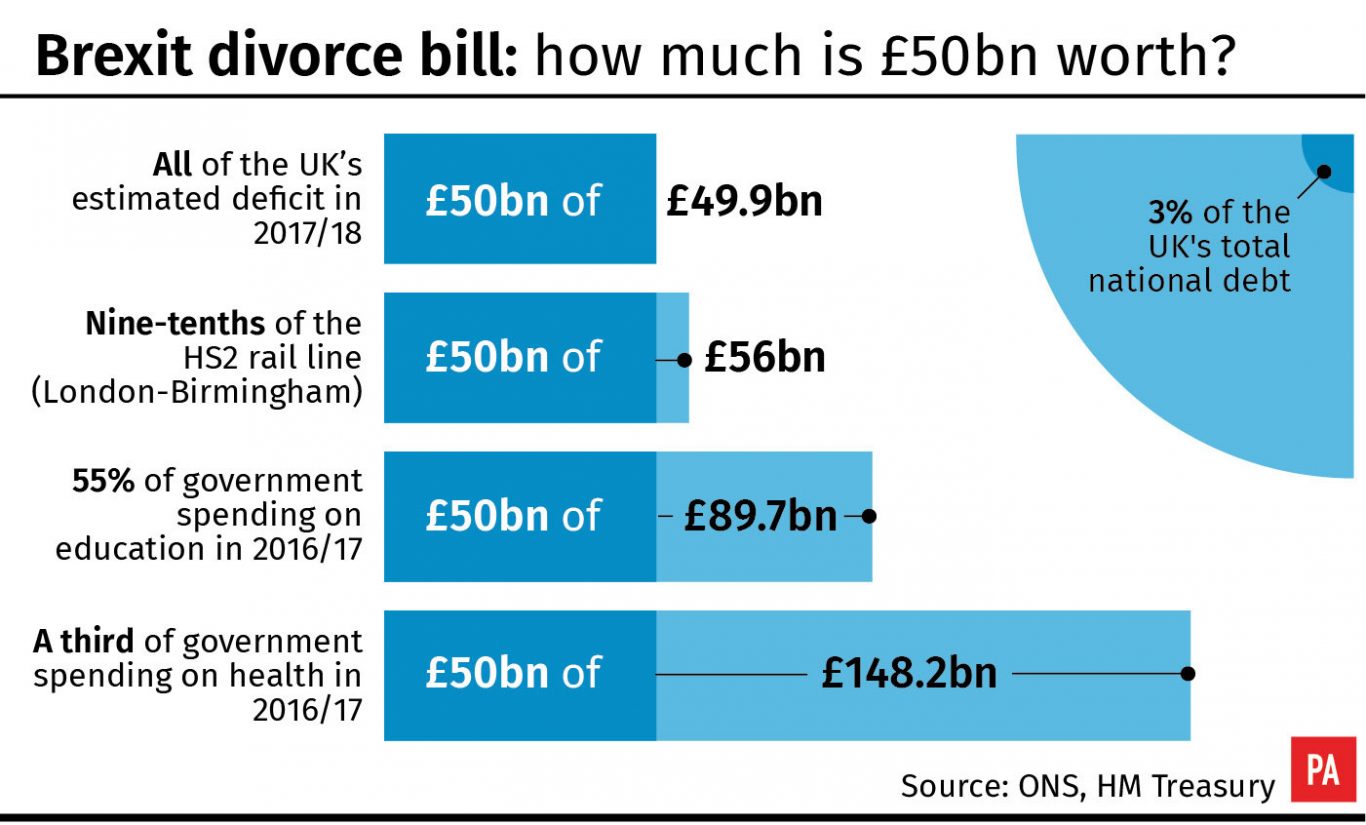
Ireland has issued a renewed warning that the UK must come up with a solution to the issue of the border between the North and the Republic if Brexit negotiations are to progress.
Irish agriculture minister Michael Creed said the British Government need to put forward a “political solution” to ensure there was no return to the “hard border” of the past when Britain leaves the EU single market and the customs union.
The border issue has emerged as a major sticking point in the Brexit talks in the run-up to a crunch EU summit on December 14 and 15.
My letter to @MichelBarnier. The @Europarl_EN expects more on citizens’ rights and much more on the Irish border question. pic.twitter.com/VbHmyAaO2g
— Guy Verhofstadt (@guyverhofstadt) November 29, 2017
Theresa May is desperately hoping EU leaders will give the green light for the second phase of the negotiations – including talks on a free trade deal – to begin.
The Department for Exiting the EU (DExEU) refused to comment on a report in The Times that British negotiators had put forward a proposal to devolve powers to Northern Ireland to enable “customs convergence” with the Republic in areas such as agriculture and energy in an attempt to break the deadlock.
The paper quoted sources in Dublin as saying that there had been “movement” on the issue and confidence was growing that agreement could be reached in time for next month’s summit in Brussels.
However, appearing on BBC2’s Newsnight, Mr Creed said that they had yet to see a workable solution from the UK.
How could the Irish border issue be resolved in Brexit talks? @EvanHD asks Irish Minister for Agriculture Michael Creed @creedcnw #newsnight pic.twitter.com/Gc6Np33yJ5
— BBC Newsnight (@BBCNewsnight) November 29, 2017
He said that having ruled out an Irish proposal for Northern Ireland to remain part of the single market and the customs union, it was up to the British to say how they could get round the need for border checks.
“If the UK has clearly said no to a single market and customs union, it is clearly incumbent on the British Government to articulate a way forward that enables us to have an invisible, seamless border which they have said they want,” he said.
“We need political solutions now and we are not getting them from the UK Government.”
On Wednesday, Theresa May denied that the UK has agreed a Brexit “divorce bill” with the EU, amid reports of a deal which could see Britain pay up to £50 billion.
During a visit to Iraq, the Prime Minister insisted that the UK was “still in negotiations” with Brussels and that “nothing is agreed until everything is agreed”.
 (PA Graphics)
(PA Graphics)
DExEU would not comment on a report by Newsnight that the two sides would put a figure on the final settlement, with the British view that it would come to between £40 to £45 billion with an “absolute cap” at £45 billion.
While Brexiteer Cabinet ministers such as Boris Johnson and Michael Gove appeared to be signed up to the Prime Minister’s approach, there was disquiet at the emerging scale of the settlement among some Tory MPs.
Backbencher Peter Bone told The Guardian he would be prepared to vote down a final Brexit deal that came at too high a price.
“I think people in the country will be very, very upset. I don’t think paying billions to the EU is what the people voted for,” he said.
“If the deal is voted down we come out on World Trade Organisation rules. I don’t think that is a problem at all.
“Then all that money – £60 billion lying around – we could use that to help the NHS and other things and even do tax cuts.”


Why are you making commenting on The Herald only available to subscribers?
It should have been a safe space for informed debate, somewhere for readers to discuss issues around the biggest stories of the day, but all too often the below the line comments on most websites have become bogged down by off-topic discussions and abuse.
heraldscotland.com is tackling this problem by allowing only subscribers to comment.
We are doing this to improve the experience for our loyal readers and we believe it will reduce the ability of trolls and troublemakers, who occasionally find their way onto our site, to abuse our journalists and readers. We also hope it will help the comments section fulfil its promise as a part of Scotland's conversation with itself.
We are lucky at The Herald. We are read by an informed, educated readership who can add their knowledge and insights to our stories.
That is invaluable.
We are making the subscriber-only change to support our valued readers, who tell us they don't want the site cluttered up with irrelevant comments, untruths and abuse.
In the past, the journalist’s job was to collect and distribute information to the audience. Technology means that readers can shape a discussion. We look forward to hearing from you on heraldscotland.com
Comments & Moderation
Readers’ comments: You are personally liable for the content of any comments you upload to this website, so please act responsibly. We do not pre-moderate or monitor readers’ comments appearing on our websites, but we do post-moderate in response to complaints we receive or otherwise when a potential problem comes to our attention. You can make a complaint by using the ‘report this post’ link . We may then apply our discretion under the user terms to amend or delete comments.
Post moderation is undertaken full-time 9am-6pm on weekdays, and on a part-time basis outwith those hours.
Read the rules hereLast Updated:
Report this comment Cancel